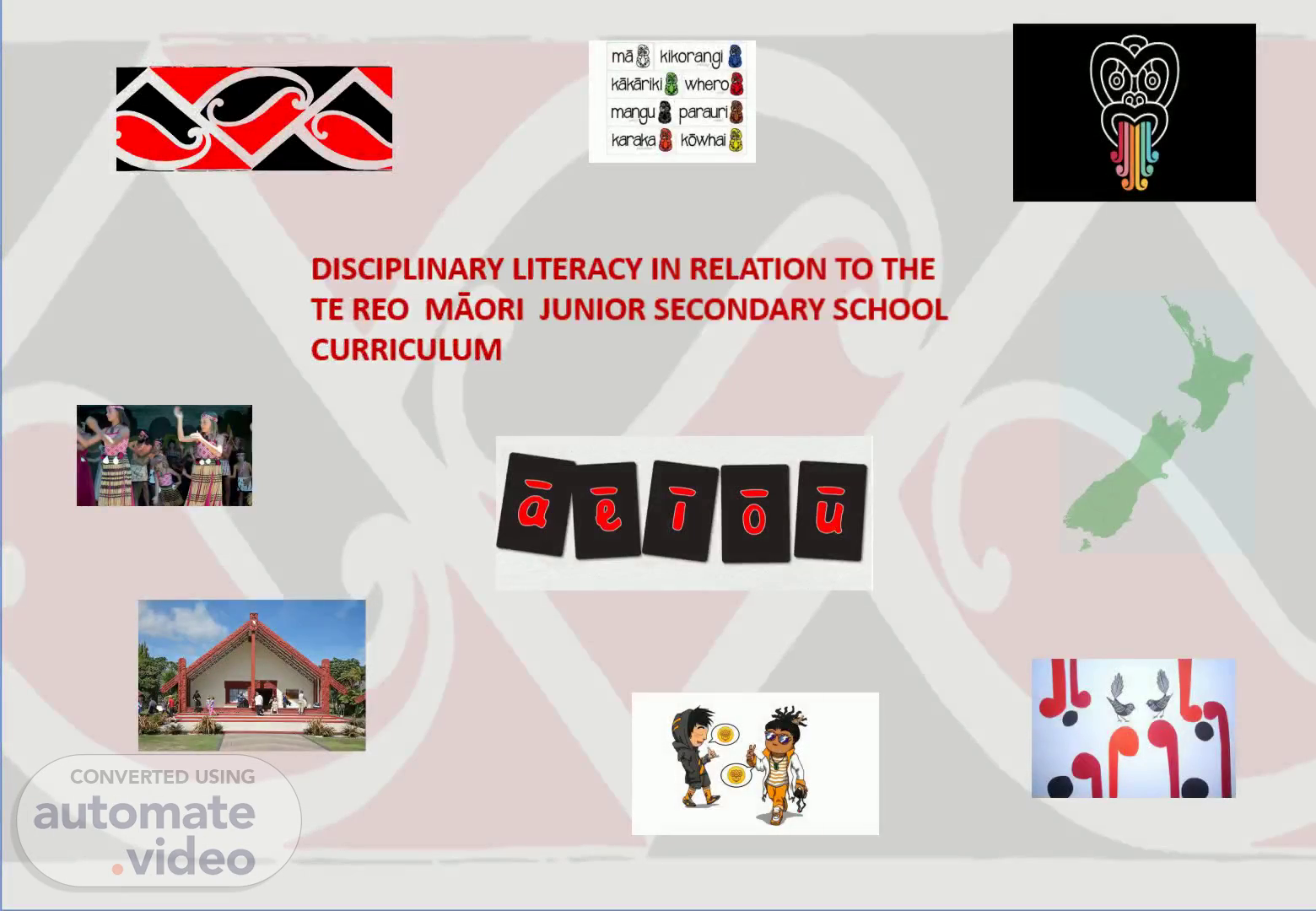
Disciplinary literacy
Scene 1 (0s)
Untitled_0.wav. DISCIPLINARY LITERACY IN RELATION TO THE TE REO MĀORI JUNIOR SECONDARY SCHOOL CURRICULUM.
Scene 2 (2m 1s)
sliderua.wav. KEY FACTORS IN BEING DISCIPLINARY LITERATE One students success vs. another student’s failure.
Scene 3 (6m 21s)
Audio Recording 25/10/2021 at 12:25:46 PM. Based on your practica experience, describe how ‘being disciplinary literate’ was a key factor in one student’s success, and in another student’s failure. b) For the latter student, how should a teacher of [your subject] design and deliver instruction to improve their literacy skills? c) Why is metacognition pivotal to effective disciplinary literacy instruction? d) Based on the above, describe the skills and strategies a student should have to be considered ‘literate’ within the context of your major teaching subject e) Finally, draw up a list of 5 – 7 ‘ Principles of Effective Disciplinary Literacy Practice ’ that can guide how you and your colleagues should approach and implement literacy instruction within your department or faculty..
Scene 4 (8m 54s)
Audio Recording 15/10/2021 at 2:06:08 PM. METACOGNITION.
Scene 5 (13m 54s)
Audio Recording 25/10/2021 at 10:59:00 AM. SKILLS AND STRATEGIES A STUDENT SHOULD HAVE TO BE CONSIDERED ‘LITERATE’ WITHIN TE REO MĀORI JUNIOR CURRICULUM T his is an ongoing learning process/journey, however students should be able to; Demonstrate and engage in Manaakitanga , whanaungatanga and in the practice of mahi tahi Be able to identify the sounds of letters in the Maōri alphabet, letter combinations, intonation and stress patterns Understand a range of short oral texts containing familiar phrases and sentences Write simple familiar words and sentences Respond appropriately to simple familiar instructions and questions Build in confidence to Initiate simple conversations using kupu /vocab learned Combine visual and verbal language to present information and/or ideas -Continue to build on vocabulary by using text books and online resources - -Have gained some understanding and begun learning of how to develop constructs of sentences with nouns and pronouns ( tū kupu ), verbs ( kupu ahua ) , adjective ( kupu mahi)..
Scene 6 (16m 34s)
Audio Recording 25/10/2021 at 11:26:59 AM. Facilitate not teach Role of teacher Cultural context Safety Role of student Instruction and assessment.
Scene 7 (19m 59s)
References Bishop,R and Berryman,M , (2008 ). The Te Kotahitanga Effective Teaching Profile . retrieved from https://ad.doubleclick.net/ddm/trackclk/N137801.153842FACEBOOKNZ/B26 Ellis, R (2008) Principles of instructed second language acquisition retrieved from http://www.cal.org/resources/Digest/instructed2ndlang.html H. J. Hartman (Ed.) 2001 Metacognition in Learning and Instruction: Theory, Research, and Practice . Dordrecht, The Netherlands: Kluwer Academic Publishers. pp. 33-68 Gunning, T. (2012). Building Literacy in Secondary content area classrooms. Upper saddle river (NJ), Pearson education. Kiplin,K . (2020) 260.492 Teaching and Learning in a secondary Context MTUI webcasts (D4/3,GLB) https://webcast.massey.ac.nz/Mediasite/Play/eedf8b McConachie, S, M. & Petrosky , A, R. (2010) Content Matters: A Disciplinary literacy approach to improving student learning. Jossey-Bass.
Scene 8 (20m 44s)
Newton.et al. (2010) Intercultural communicative language teaching: Implications for Effective Teaching and Learning A Literature Review and an Evidence- based Framework for Effective Teaching . Retrieved from https://www.educationcounts.govt.nz/-Implications-for-Effective- Teaching- and- Learning.pdf Ministry of Education (2004): Effective Literacy strategies in Years 9 to 13 : A guide for teachers. Wellington: learning Media. Ministry of Education (2007). The generic framework for teaching and learning languages in English- medium schools. Wellington: Learning Media Limited . Te Kete Ipurangi (2021) The concept of Ako .retrieved from https://tereomaori.tki.org.nz/Curriculum-guidelines/Teaching-and- learning-te-reo-Maori/Aspects-of-planning Spencer,J . (2018) Five ways to boost Metacognition in the classroom retrieved from https:// spencerauthor.com /metacognition/.